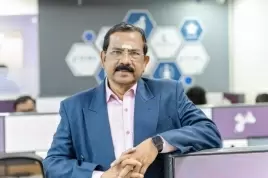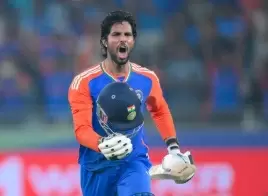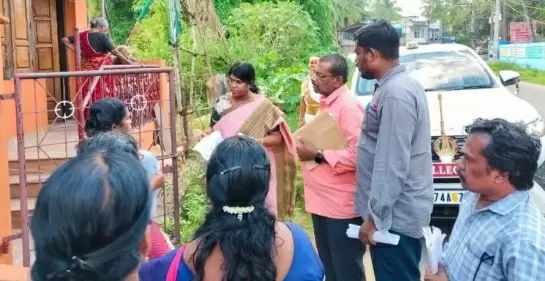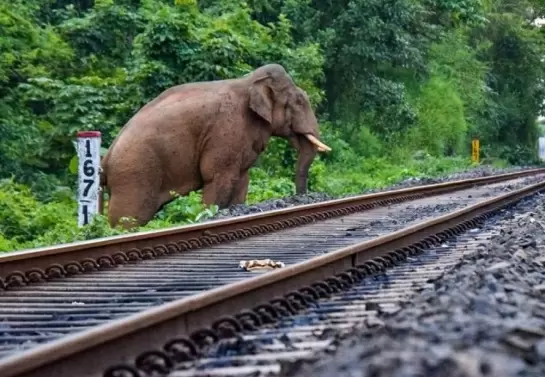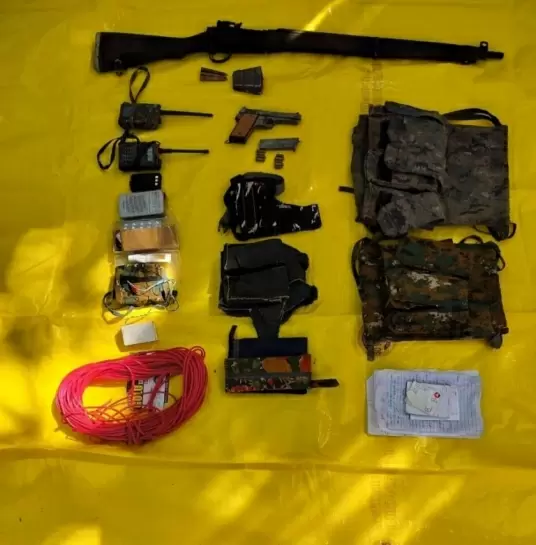From Cylinder Boy to Global Headhunter: Bharat Bylappa’s Unstoppable Rise

Partho Burman
|
03-November-2025
Vol 16 | Issue 45
Born to a dairy-worker father and a homemaker mother, Dr Bharat Bylappa dreamt big but struggled to even clear college. One business after another slipped out of his hands - cylinder distribution, marble products, interior design, shirt manufacturing, and even an IT education venture he helped build before being pushed out.
But he never gave up. In 2007, he restarted from scratch, working out of his Bengaluru home with rented computers and a handful of clients. Today, that humble seed has grown into an international recruitment and tech group with operations in South Africa, Malaysia and the UAE, and a turnover of Rs 12 crore.
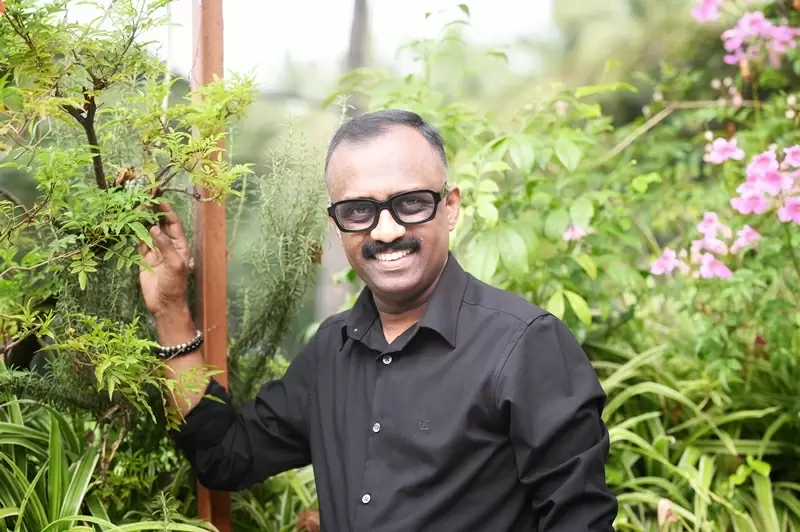
| Bharat Bylappa tried his hand in one venture after another before founding his successful HR agency (Photos: Specail Arrangement) |
During the pandemic, he revived his childhood love for farming, cultivating organic avocado trees and opening yet another chapter in his journey.
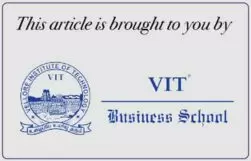
The second of four siblings, Bharat grew up in a lower-middle-class household in Bengaluru. He studied at Padmavathi Public School and completed Class 10 in 1988. But academics did not excite him. After failing to secure adequate marks in PUC, he dropped the idea of pursuing a BSc in Agriculture at the University of Agricultural Sciences, Bengaluru.
“I wasn’t good at studies,” he admits. With no clear direction, he turned to work.
The entrepreneurial spark first lit when he was 17. “At high school, I was gifted a book on Mohan Singh Oberoi, the owner of the Grand Hotel in Calcutta The book inspired me and changed my view of life,” he recalls.
His earliest venture came through a sub-vendor contract to distribute LPG cylinders, fetching him just 50 paise per cylinder. He streamlined supply, met customers personally, and ensured timely delivery, helping the distributor become one of the leading agencies in Bengaluru. It was his first taste of business success.
While managing the distributorship, he enrolled for a Bachelor of Business Management programme at Al-Ameen College in 1993. But business consumed most of his time.
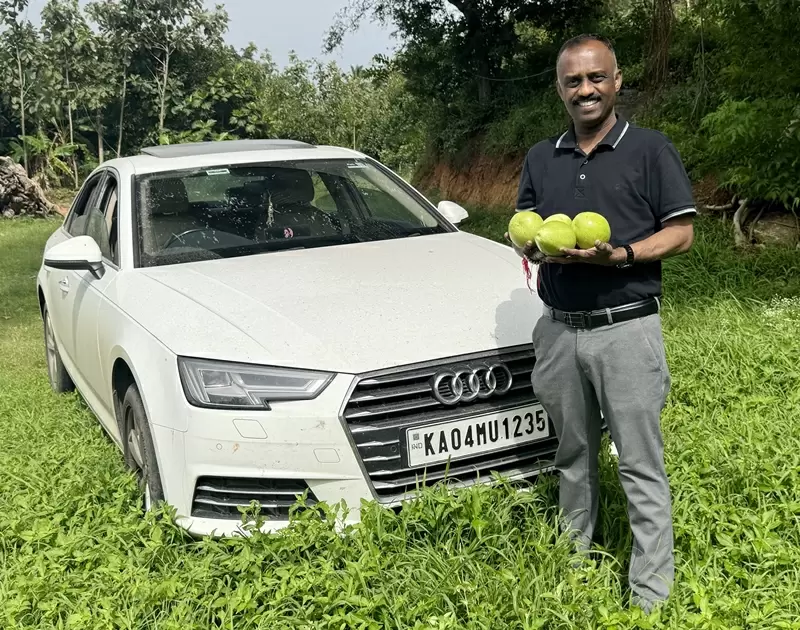
| Reviving his childhood love for farming, Bharat now cultivates 80 organic avocado trees on his two-acre farm at Varadhenahalli |
He often skipped classes, and in 1996, the college denied him a hall ticket for the final exams due to insufficient attendance. “I regarded that as my fate. With that, my education came to an end,” he says.
Soon after, his business took a hit when the LPG contract was withdrawn and handed over to a relative of the distributor. It was a temporary setback, but Bharat would soon get back on his feet.
In 1996, Bharat and two friends contributed Rs 10,000 each to set up Vinayaka Industries, a unit that manufactured cultured marble kitchen sinks, bathtubs, washbasins, and soap trays.
Bharat handled production, sales, delivery, and payments almost single-handedly. The venture grew in the beginning, but a bulk order from an apartment project resulted in payment delays and a cash crunch. Operating largely on credit, he could not reinvest or sustain the business. With no financial support from home, the unit shut down.
Undeterred, he joined the Interior Design Academy (IDEA) in 1997 and launched an interior design firm, KB Designs. It lasted just a year. He then started a small shirt-making unit that worked on subcontract orders. That too folded due to lack of capital.
A newspaper advertisement about an education-technology franchise caught his attention. The venture required around Rs 21 lakh. Bharat contributed Rs 50,000, and raise the rest of the money through loans and friends. He immersed into the business wholeheartedly and gave it his best shot.
“I used to attend the office at 4 am and log out at 11 pm,” he says. The centre performed well, and he built systems and a team, eventually putting the operations on auto-mode. But internal differences led to his exit.
“I was kicked out because they thought why should I be paid a salary. Besides, as a co-founder, I was entitled to shares. Nonetheless, the business soon collapsed once I left it,” he says with a laugh.
His entrepreneurship, he thought, had come to an end.
But things turned around when he joined a Delhi-based recruitment firm as a recruiter in 2002. He had no experience in the field and reported to managers younger than him, but he did not mind.
“I believed knowledge was important and didn’t see any problem in reporting to juniors,” he says. What he lacked in experience, he made up for with his ability to connect with clients and candidates. Within months, he emerged as one of the top performers in the company.
“It was then my recruitment journey as a headhunter started. I didn’t go the traditional way of taking profiles from portals and giving them to clients. I began researching how the job markets in the USA, New Zealand and Australia work.”
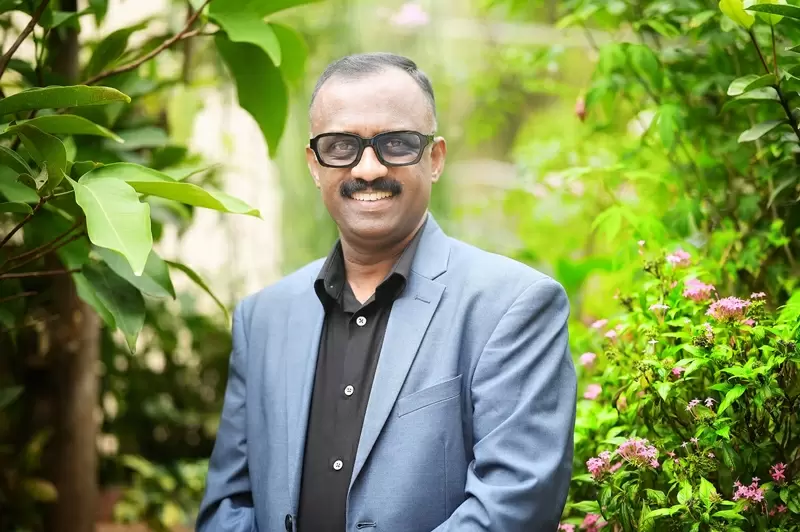
| Ask the Headhunter: Reinventing the Interview to Win by Nicholas Corcodilos made a strong impact on Bharat |
A book, Ask the Headhunter: Reinventing the Interview to Win by Nicholas Corcodilos, deeply influenced him.
In 2007, he decided to restart as an entrepreneur, but with no big capital. “I opted to go with zero capital,” he says. He rented a computer for Rs 1,000 a month and started his recruitment business from home. His first cheque was Rs 2,91,564, a copy of which he placed on his cabin wall.
“My first cheque became my investment,” he says. With it, he bought two Dell computers and two tables. As clients increased, he hired staff. Soon he was working with over 130 companies.
He registered his firm, Setuve Staffing Solutions, in April 2007. It became Bharat Headhunters Pvt Ltd in 2012 and a public limited company in 2019. The company identified and placed suitable candidates through targeted headhunting, earning a fee upon successful placement.
His close work with software engineers sparked a new idea. In 2015, he and his wife Kalavathy Bylappa, a software engineer, co-founded Tranway21 Technologies Ltd.
Their company grew entirely through word of mouth, without a sales team, working with major MNCs such as Infosys, Wipro and Oracle.A defining moment came in February 2020, when Tranway21 was listed on the stock exchange.
But within weeks, the COVID-19 lockdown crippled business. The slowdown lasted two years. Yet it was during this time that Bharat returned to agriculture, his childhood interest.
He acquired two acres at Varadhenahalli, Greater Bengaluru, and began growing butter fruit (avocado) without any formal training. Realising the need for technical knowledge, he enrolled for a one-year diploma programme - Diploma in Agricultural Extension Services for Input Dealers - at the University of Agricultural Sciences, Bengaluru.
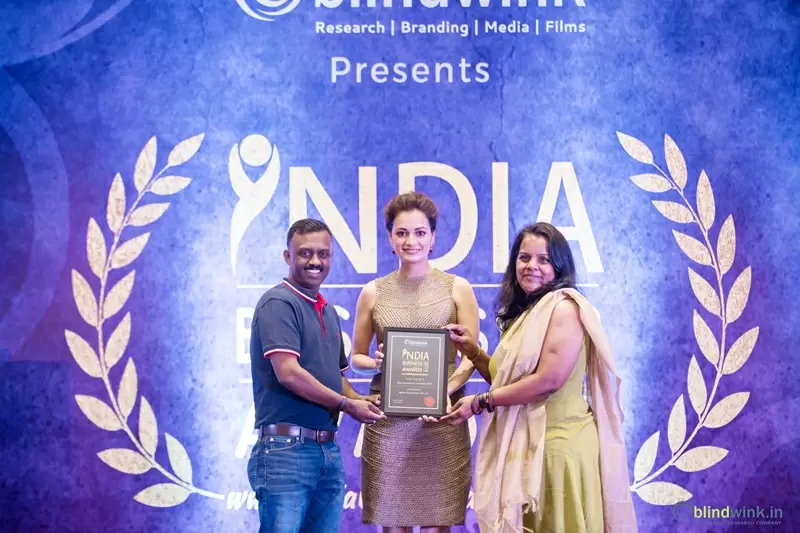
| Bharat and his wife Kalavathy, co-founders of Tranway21 Technologies, receiving an award from actress Dia Mirza |
He now grows 80 avocado trees organically. The fruits are sold directly to consumers at Rs 180–220 per kg. He earned Rs 2 lakh in his second year and now plans to export to Dubai. His next focus is cultivating moringa.
Bharat and Kalavathy married in 2003 after eight years of courtship. Their daughter, Hema, 20, is pursuing interaction design at Strate School of Design, France, while their son, Amith, 18, is in his first year of B.Com at St Joseph’s College of Commerce, Bengaluru. The couple has received multiple national awards.
“I am a motivational and TEDx speaker. Dreams should never die. Without dedication and hard work, survival becomes difficult,” he says. From failure after failure to achieiving success, Bharat’s story is proof that perseverance can rewrite destiny. - ©TWL



